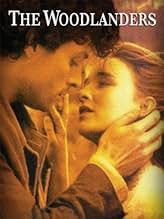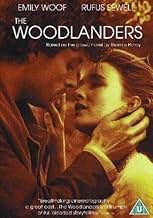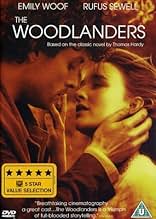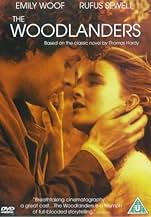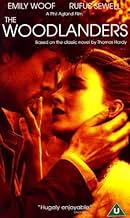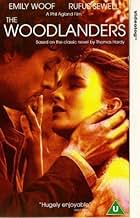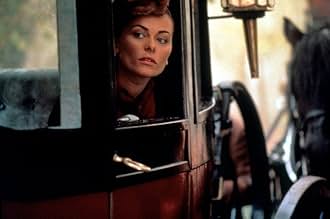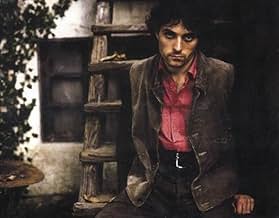The story is set in late 19th century rural corner of South England. The daughter of timber merchant Melbury, Grace, returns to the town after finishing school. Her father now believes she c... Read allThe story is set in late 19th century rural corner of South England. The daughter of timber merchant Melbury, Grace, returns to the town after finishing school. Her father now believes she can find a better husband than her childhood sweetheart, woodsman Giles. She marries handso... Read allThe story is set in late 19th century rural corner of South England. The daughter of timber merchant Melbury, Grace, returns to the town after finishing school. Her father now believes she can find a better husband than her childhood sweetheart, woodsman Giles. She marries handsome young doctor FitzPiers, but soon finds out he's not the man of her dreams and she still... Read all
- Awards
- 3 wins & 1 nomination total
- Director
- Writers
- All cast & crew
- Production, box office & more at IMDbPro
Featured reviews
It has an immense integrity - the recreations of the woodlander's homes and workplaces, as mentioned earlier the superb faultless control of the quality of light (longish scenes shot just after dawn, at dusk etc etc), the authentic period behaviour and manners, the unforced pace mirroring the mood. It is full of traditional understated virtues both the story itself and in the way it wears its technical virtuosity.
If Titanic (mentioned by an earlier reviewer) was a great clanking iron CGI mechanical monster, heavy handed in all departments, this is all living and breathing humanity on a human scale - an increasingly rare treat.
Performance-wise the cast is well-chosen, with gorgeous Rufus Sewell in the lead role as the brooding woodman Giles, who keeps his feelings for the now-better-than-he Grace (Emily Woof) to himself; as Fitzpiers, Cal Macaninch makes the character just as unsympathetic as he was in print (a close cousin to the Brontes' Edgar Linton is this starchy doctor). Jodhi May completes the mix as Marty, the village girl who remains doggedly devoted to Giles.
The countryside is photographed well but the momentum lacks the cinematic scope which would have made this a truly interesting film.
This is also a wonderful discovery for those of us who have come to love movie versions of Thomas Hardy novels (or stories). It tells the story of a young woman who has been sent off to finishing school by her father so that she can rise above the level she has grown up in: the lower- class timber workers of the deep woods in 19th-century rural England.
Though she and a local woodlander had had an agreement to marry when they came of age, her father wants something better for her and encourages her to marry a local doctor who lives and practices in the village. She agrees to marry the doctor, but soon learns that he cannot stand the crude rustic manners of the local people.
This sets up a series of conflicts between her and her father as well as the way she feels about the life she had been raised in and the life that her father wants for her. I love the way the story unfolds as well as the dark (and often wet) sylvan atmosphere that it so capably captures and inhabits.
George Fenton's music score has a lot of beautiful sweep and passion, underlying the tragedy of the story convincingly but not obviously, unsurprising seeing as Fenton's music has always had that effect, while the script is literate and true in spirit to Hardy's prose. The story may lack the depth of the book and the beginning and end have pacing lulls, however it is still told beautifully and compellingly with faultless mood contrasts, and deserves further credit for matching the slow but spacious pacing of the book, handling the romance subtly, the rural if at times gloomy atmosphere it evokes and for how well it makes an effort to convey how the characters would interact, speak and behave. Phil Agland does a solid job directing, really not bad for a feature film debut. Rufus Sewell is a smouldering and affecting Giles, the character we feel the most for. Emily Woof's Gracie is luminous and strong-willed as well as equally touching, it's a different character for her and she acquits herself very well. Cal Macaninch is suitably sly and snobbish, while Polly Walker makes a sinister impact, Jodhi May is a sympathetic Marty South(more so than in the book) and Tony Haygarth makes for a very ideal father-figure, of the firm yet warm and well-intended kind. All in all, falls short but it is well made and earnestly done. 7/10 Bethany Cox
Did you know
- TriviaFinal film of Sheila Burrell .
- Quotes
Marty South: Oh, Giles, if only you could tell your heart to be free.
Giles Winterbourne: You can't tell the heart. The heart hopes. Most of all where it's hopeless.
- How long is The Woodlanders?Powered by Alexa
Details
- Runtime
- 1h 38m(98 min)
- Sound mix
- Aspect ratio
- 2.35 : 1

